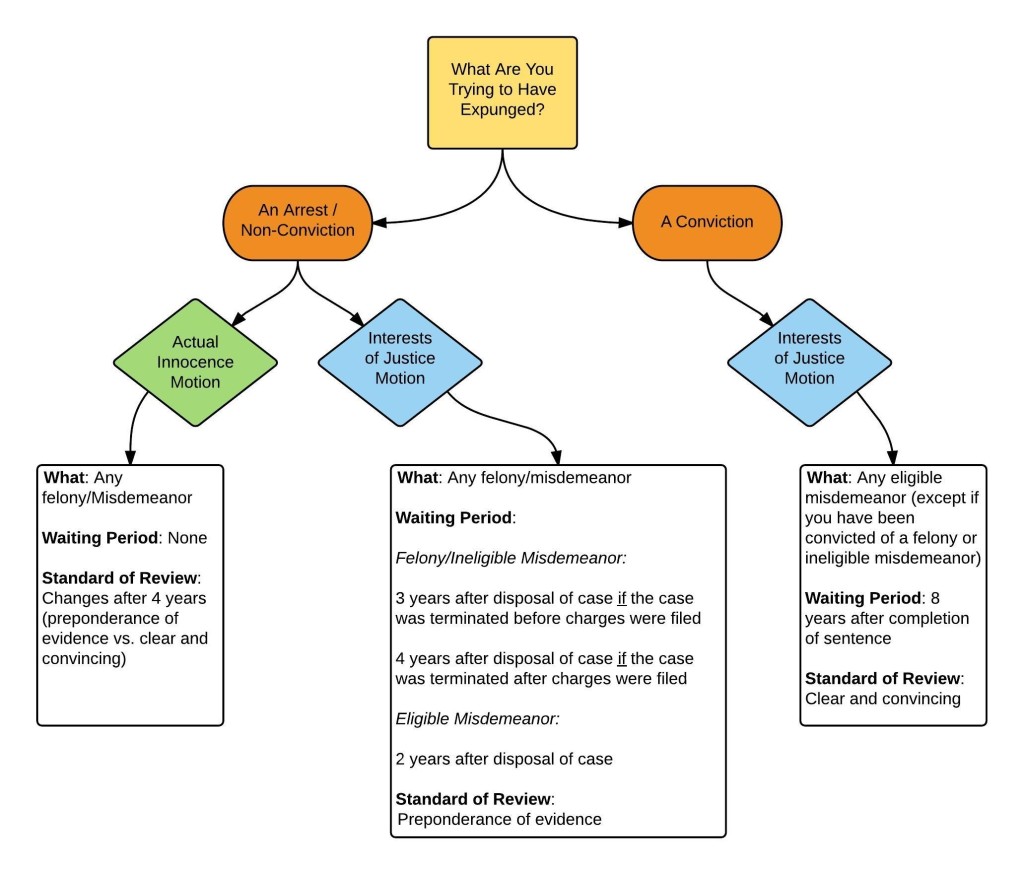DC Expungement Lawyer
A criminal record in Washington, D.C. can make it difficult to get a well-paying job, take part in financial programs and loan opportunities, or rent an apartment. Don’t struggle for the rest of your life—contact our Washington D.C. expungement lawyers. If you meet certain requirements and want your record sealed from the public, a Washington D.C. expungement lawyer from our firm can assist you.
The laws of Washington D.C. provide an avenue for you to clear your name of criminal records. However, it’s a complex process that usually requires advanced knowledge of the D.C. Criminal Code and relevant procedures. Speak to a lawyer in our D.C. criminal defense practice group about the specific nature of your unique case.
What Are You Looking to Get Expunged?
In order to determine what sort of motion your DC expungement lawyer will file, you’ll need to know what sort of public record you’re looking to get sealed.
Arrests and Non-Convictions
If you’re looking to get an arrest or non-conviction expunged, there are two possible motions you may file: an “Actual Innocence” motion, or an “Interests of Justice” motion. The former is only available for arrests and non-convictions.
Convictions
Even if you’ve been convicted of a crime, it may be possible to get your record sealed. Your option in this situation will be to file an Interests of Justice motion, but there are many details about the conviction in question and your past criminal history that can impact things like eligibility and waiting periods.
Please see the chart below for a basic breakdown of your expungement options and read on to learn more about expungement laws in the District of Columbia. To learn what options may be available to you, call a D.C. expungement lawyer with our firm today.

Actual Innocence Motions
Actual innocence motions can be pursued when an individual has been charged with a crime but not convicted of it, and now wishes to have that charge removed from his or her record. One important thing to know about these types of cases is that the burden of proof lies on the individual seeking the expungement to meet a certain burden of proof that demonstrates actual innocence.
Interests of Justice Motions
Interests of justice expungement motions, on the other hand, are a bit more flexible in that there is the possibility to have a conviction expunged from your record if that conviction meets a certain set of criteria (see below).
Eligible Misdemeanors
Any misdemeanor that is not in the list of ineligible misdemeanors is considered an “eligible misdemeanor.” If you are convicted of an eligible misdemeanor, and you do not also have a conviction for an ineligible misdemeanor or felony, you may file a motion with the court to seal the records for that conviction. However, a waiting period of eight years must elapse since the completion of the sentence for the conviction before you can file for expungement in the interests of justice. D.C. Code § 16-803(c)(1).
If you were arrested and/or charged with an eligible misdemeanor, but the case was terminated without a conviction, a waiting period of two years must elapse since the termination of the case before you can file for expungement in the interests of justice. D.C. Code § 16-803(a)(1)(A).
Ineligible Misdemeanors and Felonies
All felonies (with the sole exception of a Failure to Appear felony charge under D.C. Code § 23-1327) are considered more serious than misdemeanors and carry a longer waiting period before a motion can be filed requesting expungement in the interests of justice. Certain misdemeanors, called “ineligible misdemeanors,” join the felonies in this extended waiting period.
Convictions
If you were convicted of an ineligible misdemeanor or a felony, that case will never be eligible for expungement. That conviction will also bar the sealing of any other case you have that resulted in a conviction, regardless of what the charges were in the other case.
Additionally, having an existing felony or ineligible misdemeanor conviction will extend the waiting period that must elapse before you may file for expungement in other cases that did not result in a conviction. Before filing a motion to seal records in the interests of justice for any charges that did not result in a conviction, you must wait five years from the completion of your sentence for a conviction of an ineligible misdemeanor, or ten years from the completion of your sentence for a conviction of a felony. D.C. Code § 16-803(a)(2)(A)-(B); D.C. Code § 16-803(b)(2)(A)-(B).
Arrests
If you were arrested for an ineligible misdemeanor or a felony, but the charges were never filed by the prosecution, a waiting period of three years must elapse since the termination of the case before you can file for expungement in the interests of justice. D.C. Code § 16-803(b)(1)(A).
If you were arrested and charged with an ineligible misdemeanor or a felony, but the case was terminated without a conviction, a waiting period of four years must elapse since the termination of the case before you can file for expungement in the interests of justice. D.C. Code § 16-803(b)(1)(A).
For ineligible misdemeanors or felonies, the burden will be on you to establish by a preponderance of the evidence that it is in the interests of justice to seal your record. D.C. Code § 16-803(i)(2).
Work with a D.C. Expungement Lawyer Today
If you’re ready to pursue an expungement that could make a big impact on the rest of your life, please give our experienced D.C. expungement attorneys a call. Our legal team is standing by to conduct your free initial consultation.













